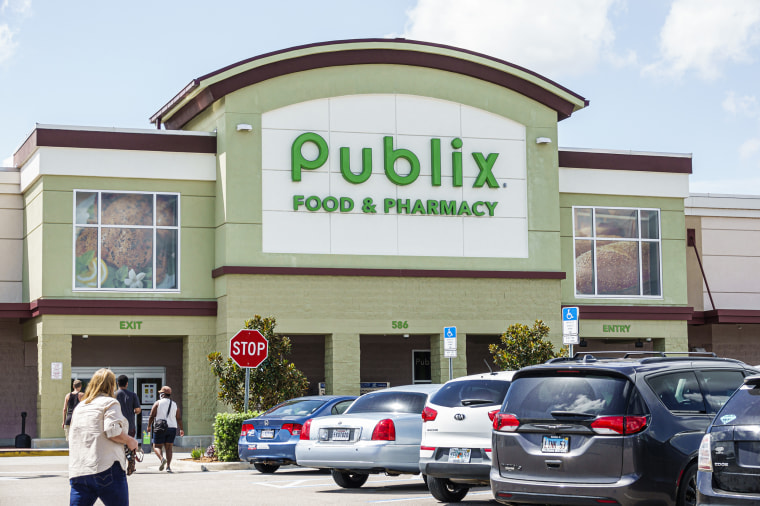As coronavirus cases top daily records and city and state lockdowns come into effect, grocery stores are taking new steps to avoid the empty shelves that were the hallmark of the first weeks of the pandemic.
Supermarket chains like Kroger, Publix, and H-E-B have started to limit in-store and online purchases on products such as toilet paper, cleaning supplies and paper towels to reduce stress on supply chains.
“What we are trying to do is to make sure that we don’t have hoarding," Scott McClelland, president of H-E-B Food and Drug, told NBC News’ Jo Ling Kent in an interview. “One of the things that we found in particular with the recent run on paper goods is that we want to be able to spread it as far as we can, amongst as many shoppers as possible.”
Tops Friendly Markets and Wegmans are the most recent chains to roll out new purchase limits, updating the ongoing lists of personal care and cleaning supply limits they have each had in place since March. Wegmans added napkins and facial tissues, while Tops added trash bags, freezer bags and paper plates, among other items.
"We still see some stress in things like jelly, bacon and breakfast foods," Walmart U.S. President and CEO John Furner said Tuesday in a quarterly earnings call. "Where we have the most strain at the present time would be bath tissue and cleaning supplies."
Furner also noted that there are still parts of the supply chain that are "stressed by components that just haven't been available, including things like aluminum and cans packaging."
Around 57 percent of shoppers are considering replenishing their stockpile, according to a recent survey conducted by Inmar Intelligence.
But grocery stores are better prepared this time around, McClelland said.
“When the initial onset of Covid-19 came, there was no manual to go to and so we were having to figure out processes and policy as we went. So, we now have something to fall back upon,” he said.
However, what supermarkets didn’t have in March and April was the holiday season.
“We’re nervous about spices and we’re nervous about stuffing. So, I urge everyone that if you're going to host a Thanksgiving feast, you might want to go to the store sooner rather than later. And if you can't get everything today you can come back again next week because the supply chain will continue to bring products in,” McClelland told NBC News.
Consumers can check each of the chain’s websites for complete limit lists and monitor low-stocked items and promotions with additional resources like NowInStock.net and ZooAlert.com.

